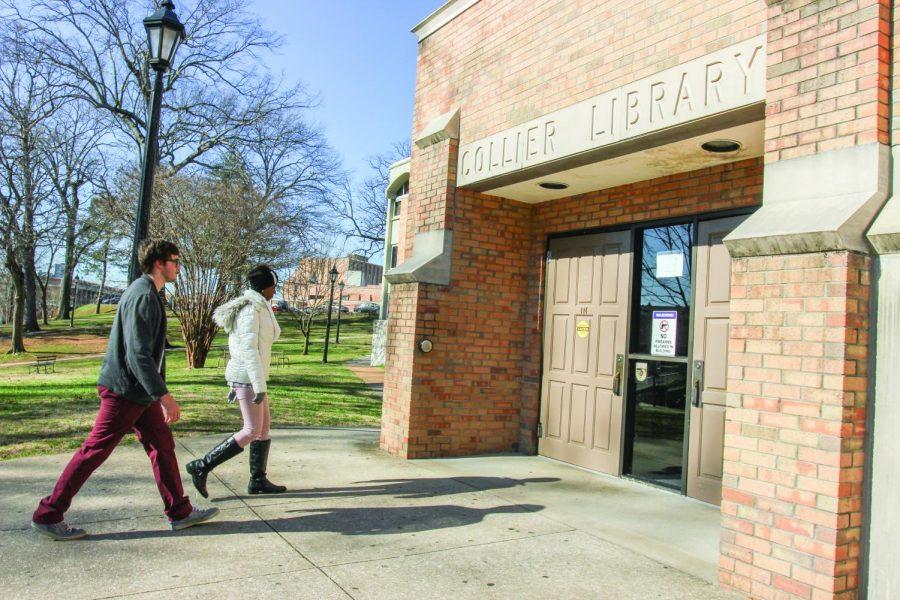UNA planning for phase two of security camera initiative
January 16, 2016
Students should feel a little safer on campus after recent police reports.
The university completed phase one of the security camera initiative last semester, and the university and Police Department are currently addressing a second phase, said Vice President for Student Affairs David Shields.
Chief of Police Kevin Gillilan said the added cameras around the parking deck and lobbies of residence halls have already been helpful with tracking individuals involved in crimes.
“In the very short span of time that the cameras have been utilized, UNA Police have solved several cases involving a variety of offenses including theft of property, drug activity, assault and the recovery of a stolen vehicle,” Gillilan said. “We’ve had around six cases that have been successfully solved (because of the cameras in the parking deck).”
Shields said phase two includes adding cameras to the outside of academic buildings and the library.
Gillilan and Shields said they believe adding security cameras around campus will ensure a safe community.
Gillilan said other outside law enforcement agencies have used the footage to help solve other crimes in the area.
It is possible that perpetrators are less likely to commit a crime if he or she knows the area is under surveillance, and he said he would like to add signage throughout the deck indicating the area is under surveillance.
Phase two of the initiative should take place in the 2016-17 academic year, Shields said. Planning for the initiative is expected to happen during late spring and into the summer of this year.
“Additional cameras will be placed as funding is made available,” Gillilan said.
Many students said they feel the university should add cameras to the outside of academic buildings, as well as inside them.
Sophomore Jonathan Wells said students were getting away with crimes without the cameras, and now they are caught in the act.
“Our biggest concern here is making sure that everyone is safe, not only on the UNA campus, but also in the community,” Shields said. “Like going in a bank, the cameras help deter incidences from happening like a burglary.”
Shields said the cost of the initiative depends solely on the number of cameras the university adds.
Sophomore Rosie McClendon said she often feels uncomfortable walking back to her apartment at night.
“I usually call my friend if I sense someone walking too closely to me,” McClendon said.
Shields said students need to look out for each other, and if they notice something suspicious, they should report it.
Gillilan said most crimes on college campuses are crimes of opportunity, meaning the perpetrator committed the crime without planning because he or she had the opportunity to commit the crime.
To prevent crimes of opportunity, students should remove valuables from their vehicles, store them securely in a safe place where only they know about it and keep emergency contacts in their phones, he said.
UNA police has a program called Student Nighttime Auxiliary Patrol (SNAP) which provides personal security service to students. If a student feels uneasy about walking at night, he or she can call and a SNAP employee will transport the student to his or her destination.
If SNAP is not available, the UNA police will escort, follow and even drive students to wherever they are going.
Freshman Paige Lewey said she has used SNAP a few times to safely escort her home.
“Sometimes, after leaving the library late at night, I don’t feel comfortable walking back, so I called SNAP,” Lewey said.


